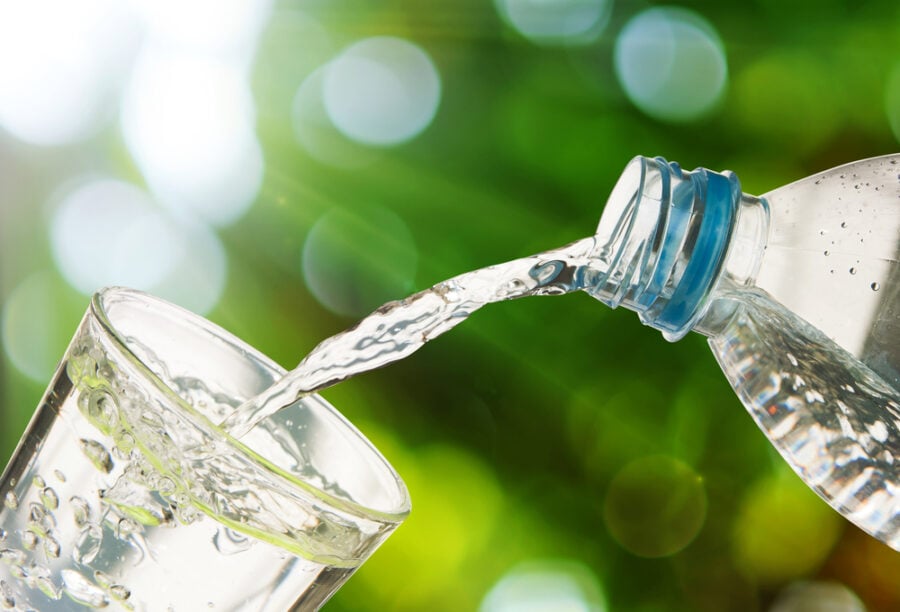Lack of fluids can lead to issues such as dehydration headache, digestive problems, constipation, acidity, and more. Therefore, it is important to ensure that you keep your body well hydrated during Ramadan.
Tip No. 1: Drink water
Start your iftar with two glasses of water. Then prepare for your day of fasting by drinking enough water throughout the night.
Keep a bottle of water close by during the evening and try to drink a cup or two at least every hour.
An easy way to remember to drink water is to associate it with a common, daily act. Ex: take a drink whenever your phone rings or put a reminder, or when commercials come on during your favorite episodes.
In general, it is advisable to drink between 8-12 glasses of water every day, and this stays the same during Ramadan, as well.
But as the period to consume water and food is short, it may not be possible to drink as much water; moreover, drinking large quantities of water at one time is not advisable.
Keep in mind that warm water will make you less thirsty and will help with digestion. Warm water helps blood circulation which is very convenient as a muscle relaxant and an aid against constipation.
Herbal non-caffeinated tea counts as water too.
Caffeinated beverages are dehydrating and for every serving, you will have to take around 2 additional glasses of water.
Tip No. 2: Plan your menu
What you eat plays a huge part in dehydrating or hydrating your body. Food that contains a lot of sugar and sugar syrup can really dehydrate you. Instead, choose raw fruits or milk-based puddings sweetened with natural date syrup or honey. Yogurt with some honey is also a great idea!
When choosing fruits and vegetables opt for ones high in water content such as watermelon, grapefruit, melons, berries, tomatoes, cucumbers, courgettes, and lettuce and greens. Examples of water-rich fruits and vegetables include cucumber (96% water), tomato (95%), watermelon (92%), pineapple (87%), orange (86%), and apple (85%).
Green salads are another good source of extra water, so include them in your Ramadan diet.
Drink Soup! Do not skip your soup at iftar, especially if it is diluted with broth, as it not only hydrates your body but also provides you with the electrolytes lost during the day of fasting.
Avoid salty and spicy food. Both can make you feel thirsty and disturb your digestion. Soy sauce is also not recommended due to its high sodium content. Anything brined or pickles in salt as well can make your mouth really dry.
Tip No. 3: Be mindful when working out
Because you lose a lot of water when you sweat, working out can undoubtedly cause dehydration. But exercising also helps your body dispose of toxins and other harmful elements that might cause dehydration later on. So, the secret is choosing the right time.
Pick a good time for exercise (two to three hours after iftar is advisable or one hour before iftar so that you can rehydrate directly.
Make sure to counterbalance the amount of water lost by drinking water before you go to sleep.
Tip No. 4: Be smart with the clothes you are wearing
The secret is simply to choose clothes that won’t make you sweat and hot!
Be careful with the color, the fabric, and the layers of clothes. They all play an important role in keeping your body temperature as low as possible or the opposite.
For example, If you work outside, wearing black is not advisable, as it tends to attract the heat and lock it close to your body.








